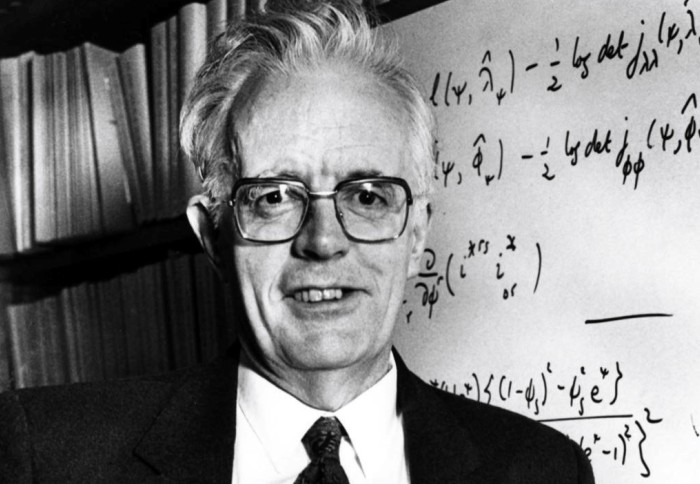In memoriam Sir David Roxbee Cox (1924 – 2022)

Imperial is extremely sad to learn of the passing of Sir David Cox who was a valued member of staff and leader for generations of scientists.
A brief obituary appears below.
Professor Sir David Cox FRS, Hon FBA, 1924-2022, was arguably the most eminent statistician of the twentieth century.
After spells at the Royal Aircraft Establishment and the Wool Research Institute he took an assistant lecturer position in Cambridge on a five-year contract. From there he spent time in the United States, before accepting an offer of a Readership at Birkbeck College in London.
He left Birkbeck in 1966 to succeed George Barnard in the Chair of Statistics at Imperial, where he remained until 1988, serving as Head of the Statistics Section and Head of the Department of Mathematics, and leaving to become Warden of Nuffield College, Oxford.
He "retired" in 1994, though in fact he continued to produce important and deeply insightful work right up until his death. He was particularly well-known for the support and encouragement he gave to young researchers - indeed, in recent years he continued to collaborate with Dr Heather Battey in the Department.
He was a prolific author, producing over 350 papers, many of which represent seminal achievements, and 20 books - although he claimed not to enjoy writing books, describing writing them as "a considerable pain". He edited the journal Biometrika for an extraordinary 25 years, from 1966 to 1991, and was renowned for reading and commenting on every paper himself. He served terms as President of the Royal Statistical Society and the International Statistical Institute.
His name lives on in a range of concepts and methods, including the Cox process, Cox models, and the Cox effect. This latter describes the disproportionate impact on a scientific journal's citation rate that one particularly heavily cited paper can have, referring to the fact that (over the study period of 1987-89) Cox's 1972 survival analysis paper accounted for over 26% of the citations to papers in Series B of the Journal of the Royal Statistical Society.
Amongst statisticians he was particularly known for adopting a pragmatic rather than a dogmatic perspective on the Bayesian/frequentist controversy, believing that different approaches were best suited to different kinds of questions. He was also hugely respected for his modesty, often stressing how hard he had found it to get to grips with ideas and to solve problems.
As you would expect, he received many honours, including the Guy Medal in Gold of the Royal Statistical Society, the inaugural International Prize for Statistics, and the Copley Medal of the Royal Society (previous recipients of which include Charles Darwin, Albert Einstein, Niels Bohr, Michael Faraday, and Carl Friedrich Gauss).
Further announcements have been made by Nuffield College and the Royal Statistical Society. You can read these at the links below:
Royal Statistical Society: Sir David Cox, 1924-2022
Nuffield College: Sir David Cox, 1924-2022
Article text (excluding photos or graphics) © Imperial College London.
Photos and graphics subject to third party copyright used with permission or © Imperial College London.
Reporter
Press Office
Communications and Public Affairs
- Email: press.office@imperial.ac.uk
